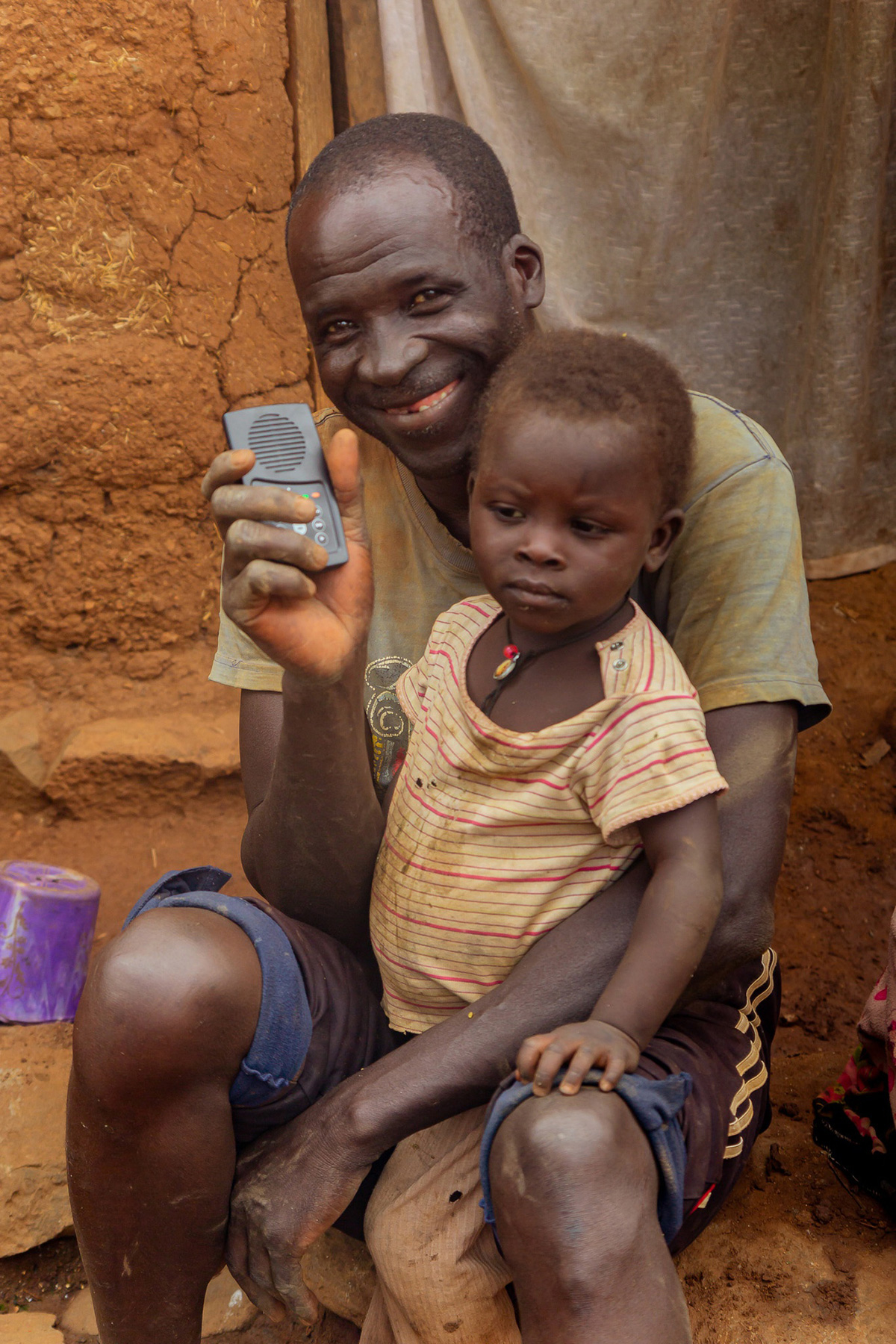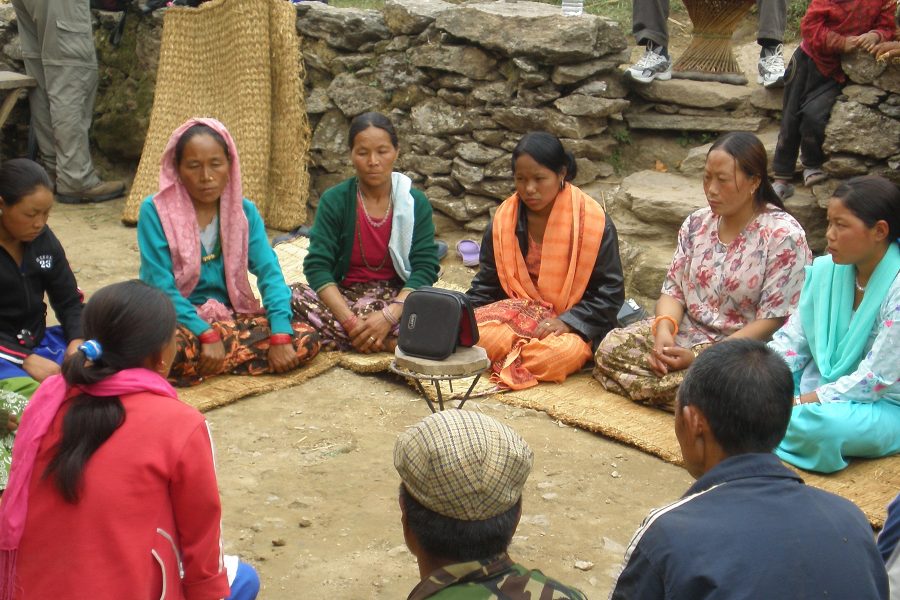While talking with folks about Spoken, I’m often asked the same handful of questions. This causes me to think that many others are likely wondering the same things, but not asking. Today, I’d like to answer a few of those questions through this blog post. I hope you find Decoding Literacy and Orality insightful!
What does it mean that 2/3 of the world’s population cannot or does not read?
Great question! I had the same question when I first learned about Spoken five years ago. To say that two-thirds of the world’s population cannot or does not read means that most of the world falls somewhere along a literacy continuum that you and I have a hard time imagining. Those who reside on this continuum – approximately 66% of the world’s population – do not primarily use text-based methods for transmitting and receiving information.
On one end of this continuum reside individuals who cannot read because they’ve either never learned how, or their heart language doesn’t have a text-based form through which they could learn how (i.e., an alphabet, character system, etc.). On the other end are individuals who can read and have achieved some level of formal education through which reading is necessary, but on the whole, they are not reading because it’s not a part of their cultural DNA. Somewhere in the middle, and the majority, are those who can sound out words on a page but are extremely limited in their ability to engage critically with any written text. This is similar to the way that my wife interacts with Russian text. Even though she grew up in Moscow and can understand Russian quite well, her ability to engage with Russian literature is minimal. As a result, she’d never read a Russian Bible for her personal devotions because it wouldn’t make sense to her, even though she can easily read aloud what the text says and make you think she’s perfectly fluent.
The main point to take away from these figures is not that some people can read while others can’t, but rather that many people who can read aren’t because they learn better and are more comfortable with oral methods of communication. At Spoken, we’ve set out to meet people where they are by communicating through forms that they can immediately engage with and understand.
 Wait a sec… 2/3 of the world cannot or does not read? Where on Earth did you get that number?
Wait a sec… 2/3 of the world cannot or does not read? Where on Earth did you get that number?
Another great question! In short, we’ve listened to the best minds in missiology (i.e., cross-cultural ministry) who have focused on oral cultures, and they express figures that reflect our estimate, as well.
In 2010, while speaking at the Lausanne Conference in Cape Town, South Africa, Dr. Grant Lovejoy, a Ph.D. with the International Missions Board, shared that 4 billion individuals worldwide were oral communicators. At the time, this figure made up approximately 2/3 of the world’s population. Since communication is primarily a result of culture, and culture doesn’t change in relatively short amounts of time, we assess that this figure hasn’t changed much (if any) since that time. By some measures, it’s a pretty conservative estimation (see https://lausanne.org/networks/issues/orality).
See the link below for Dr. Lovejoy’s address at the Lausanne Conference in 2010. https://youtu.be/CCwWx5IC1Qw
Also, see the link below for Dr. Lovejoy’s white paper, “The Extend of Orality: 2012 Update,” which explains in great detail why oral communication is more widespread than we’re often inclined to believe. https://storage.snappages.site/pp6xz7op
What about literacy statistics? UNESCO reports that 86% of the world’s population can read, so how can you say that 66% can’t or don’t?
You may be surprised to learn that most of the world (78%) uses a self-reporting method to measure literacy. This means that individuals either report for themselves (48% of the world’s countries report individually) or their households (30% of the world’s countries report through the head of the household) that they can read and write. In other words, they are asked if they can read and write, and they respond “yes” or “no.” When individuals and nations are stigmatized for not attaining high literacy levels (which they are), it makes sense that we see a strong correspondence between high “literacy” levels and those nations that self-report.
Even in instances where self-reporting is not the norm, individual countries are free to define “literacy” however they please. As a result, wildly different definitions of literacy are being used worldwide to track the same measurement. It’s like asking every country around the world to measure the average height of their people in feet, then allowing each respective country to define the measurement of a foot however they please. Some countries may claim that a foot is 12 inches, while others may insist that it’s 6 inches. Simply put, a survey with arbitrary standards that vary across the spectrum of its respondents cannot be trusted. I don’t particularly trust the UN’s literacy statistics.
If you aren’t convinced that worldwide literacy statistics are inflated (or, at the very least, unreliable), consider some national literacy statistics (according to UNESCO) that you may find surprising:
- North Korea: 100%
- Cuba: 100%
- Russia: 100%
- Philippines: 97%
- Vietnam: 95%
- Indonesia: 95%
- South Africa: 95%
- United States: 99%
So, should literacy statistics be trusted?
 You be the judge. I, for one, am not so sure. One thing I am sure of, however, is that non-readers can effectively be engaged with truth in ways they can understand. I say this because I’ve seen it personally on the mission field and at my dinner table each night when my wife and I share family devotion time with our kids. No different than the individuals that Spoken serves around the world, my kids are smart. They can critically engage with information quite well, so long as it’s packaged in a form they can understand and receive.
You be the judge. I, for one, am not so sure. One thing I am sure of, however, is that non-readers can effectively be engaged with truth in ways they can understand. I say this because I’ve seen it personally on the mission field and at my dinner table each night when my wife and I share family devotion time with our kids. No different than the individuals that Spoken serves around the world, my kids are smart. They can critically engage with information quite well, so long as it’s packaged in a form they can understand and receive.
I would never tell my seven-year-old to go read the English Standard Version (ESV) because he would need help making sense of it. Instead, I share scripture with him in a way that he understands. Sometimes, when a barrier exists between you and someone you love, you must find a way to meet them where they are. This is the essence of the Gospel. God became flesh so that you and I could understand and receive His salvation. This is our hope for all mankind, particularly those in unreached communities that don’t read.
As always, please let me know if you have any other questions. It’d be my joy to take a stab at answering them.
Much love & God bless,
Ted
Decoding Literacy and More
Thank you for reading our article on decoding literacy. If you are interested in learning more about this subject or any other see our Resources Page or Contact Us.


 Wait a sec… 2/3 of the world cannot or does not read? Where on Earth did you get that number?
Wait a sec… 2/3 of the world cannot or does not read? Where on Earth did you get that number?